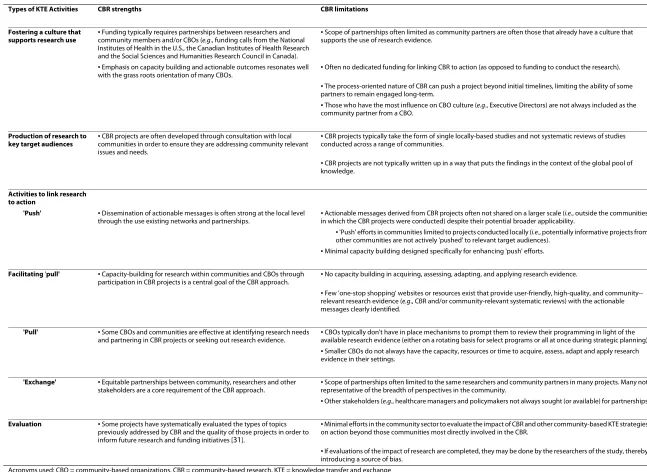Community-based knowledge transfer and exchange: Helping community-based organizations link research to action
Full text
Figure




Related documents
In conclusion, the result of this study helps to clarify the ranges of habitats and seasons of bycatch species found from crab gill net fisheries in Pattani
• Control of Soil Stack Pressure Using Mechanical Devices...
To investigate if alterations in LSD1 activity rather than gene expression alone can be used for prognostication in SHH patients, we performed a clustering of SHH tumor samples
The results showed that 1.5 mM sesamol significantly reduced the increase in ME expression levels, ME enzyme activity and NADPH content in the OE lines, which in turn led to
We do so by focusing on the politics of advice in ‘co-production’ relationships between solidarity economy activists and smallholders in Italy and on the intensified use of
In this study we review effects of mesenchymal stem cell conditioned medium in different central nervous system (CNS) disease associated with neuroinflammation..
This paper is the result of a comparison of the audit practices with respect to the audit of secret and politically sensitive subjects by the Supreme Audit Institutions (SAI’s)
Translational Research; Director, Clinical Informatics, Department of Biomedical Informatics; University of Pittsburgh; Core Faculty of RUPHI; Research Scientist at GRECC, VAPHS;